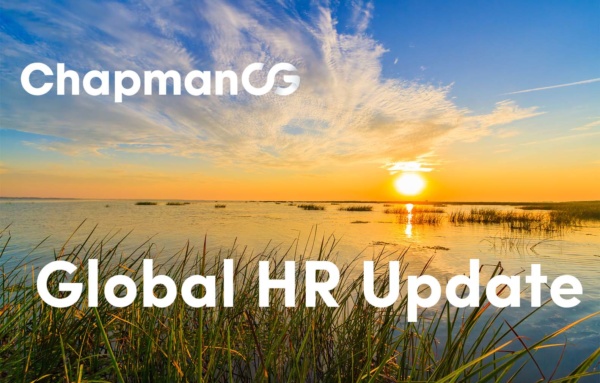ChapmanCG Managing Director, Oscar Fuchs, was invited to present to the PMC Group of HR Leaders in Tokyo today. The group is comprised of Japan HR Leaders in multinational companies, and around 50 participants attended the session at the Ivy Hall, Aoyama Gakuin on November 18th, to listen and contribute. Also joining the group were CEO of The Chapman Consulting Group, Matthew Chapman, who provided his international perspective, and Yan Sen Lu, our Japan-based consultant working on Senior Managerial-level HR search and recruitment in Japan.

Adaptability and Transparency
During the meeting, we discussed the on-going increase in professionalism of the HR function, from its roots in payroll and operations, into a phase where Employee Relations was the key skillset, to the modern age, which is now more about communication, transparency, and talent management. While there is still a large focus for Japan HR Leaders on knowledge of complex local labour laws, the key skillset that future HR leaders in Japan need to focus on is the stakeholder management of local business leaders and corporate HR officers overseas.
In order to help foster these skills, Japan HR Leaders need to mentor their teams in the ‘soft skills’ of HR leadership that it is impossible to learn from studying labour law textbooks. In domestic meetings, the Japan HR Leader needs to teach future leaders how to read and understand the feelings and agendas of the other business leaders, and formulate ways in which to form a consensus. When it comes to international conference calls and meetings, the Japan HR Leader needs to teach future leaders how to ‘open up the black box’ of Japan HR, demystifying the rules and regulations, and coming up with solutions that meet expectations. These are the key skills that will separate the ‘good’ HR leaders from the ‘great’ HR leaders at multinational companies in Japan in the future.
Mobility and Communication
One of the other key factors that we think will distinguish the Japan HR Leaders of the future, from those of today is in the area of mobility. Until now, many Japan HR professionals have been able to build successful careers with international companies without ever leaving Japan. This has been possible because the scale of operations in these companies has been big enough to allow for long-term career paths without needing to leave the country. However, in this regard, Japan has to some extent been a ‘victim of its own success’. We have historically seen only rare cases of Japan being represented by Japanese regional HR leaders in hub locations such as Singapore, Hong Kong and Shanghai. As a result, the voice of Japan is often a little quieter, and can be more under-represented than its stature would otherwise suggest.

Also, because it has been rare to circulate Japanese HR talent in and out of Japan, we have noted a significant ‘us versus them’ mentality between Japan HR Leaders and Regional HR Leaders, where Japan can sometimes get an undeserved reputation for being more resistant to change than other countries across Asia Pacific. In order to break this cycle, we need more senior Japan HR Leaders to encourage high potential future Japan HR Leaders to go on international assignments overseas early in their careers, so that they can experience Japan from an ‘outsider’s’ perspective. This will help them to work more successfully when they return to Japan, because they will understand both sides of the picture and can help work through any ambiguity. According to Matt Chapman, “Of particular importance is the need for younger generation Japan HR talent to think about their careers within a more international context, beyond the domestic market. We will see a continued thirst in the market for HR professionals who can think globally, while functioning well domestically.”

Yan Sen Lu, a Director with The Chapman Consulting Group, observed, “It was interesting to note in the meeting that attendees tended to fall into one of two groups — those that worked at foreign multinationals where Japan was very much part of the international matrix, and those where the corporate HQ was happy to leave Japan alone. For those in the latter category, ‘Good HR’ is still measured in hard HR subject-matter expertise; whereas the softer skills of communication and stakeholder management were more important in the former category. It remains to be seen whether this gap closes or widens in the coming years ahead.”
Are You Ready for the Future?
With the right package of skills, future Japan HR leaders can be better at influencing both sides of the Japan/International equation. This will ensure that global standards of HR and policy can be followed in Japan, without ignoring the specific factors that also need to be observed to ensure success in this unique market. If you are a young HR Leader in Japan, or you are helping to coach a member of your team into becoming one, please keep this in mind, so that your skills will be properly valued at international organisations in Japan.
 Andrea Merrigan
Andrea Merrigan Orelia Chan
Orelia Chan Stanislav Medvedev
Stanislav Medvedev Fleur Daniell
Fleur Daniell Finian Toh
Finian Toh Tim Rayner
Tim Rayner Nicola Hasling
Nicola Hasling Stefanie Cross-Wilson
Stefanie Cross-Wilson


